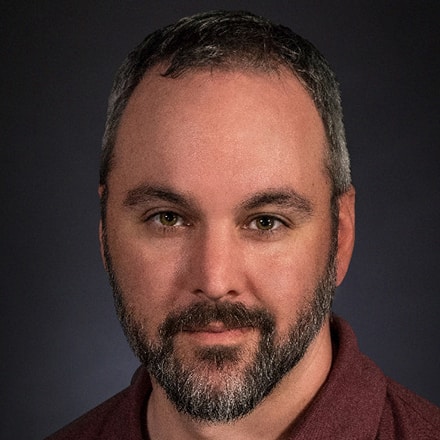How Do I Become a Certified Health Education Specialist?

Understanding the numbers
When reviewing job growth and salary information, it’s important to remember that actual numbers can vary due to many different factors—like years of experience in the role, industry of employment, geographic location, worker skill and economic conditions. Cited projections are based on Bureau of Labor Statistics data, not on SNHU graduate outcomes, and do not guarantee actual salary or job growth.
A career as a Certified Health Education Specialist CHES® can empower you to improve your community by promoting healthy lifestyles, preventing disease and educating people and whole communities about bettering their health. A chief requirement to become a health educator is at least a bachelor’s degree in community health education or a similar field.
But first, what is community health, and how is it different from public health?
What is Community Health?

Community health focuses on helping people, communities and organizations live healthier by educating them about the possible risk factors in their day-to-day behavior for adverse health conditions.
“Community health education is the ability to promote health and prevent disease, disability and premature death by educating and empowering individuals and communities to change their behaviors to improve their overall health and well-being,” said Joi Alexander, a community health education adjunct instructor at Southern New Hampshire University (SNHU). “The purpose of community health education is to positively influence the health behavior of individuals and communities, as well as the living and working conditions which influence their health."
What is the Difference Between Public Health and Community Health?

Community health isn’t exactly different than public health; rather, it is a sub-discipline of public health, according to Dr. Gail Tudor, adjunct instructor and retired program director of public health at SNHU.
While community health educators focus on health programs and how individuals’ choices influence their health and their community, the focus of public health is far more reaching.
“Public health professionals try to prevent problems from happening or recurring through promoting healthy lifestyles, researching disease and injury prevention, detecting, preventing and responding to infectious diseases, implementing educational programs, recommending policies, administering services and conducting research," Tudor said. "A large part of public health is promoting healthcare equity, quality and accessibility."
What is the Importance of Health Education?
Health education is important in a variety of ways. Chronic health conditions — those lasting a year or more and requiring online care — are the leading cause of death in the United States. They're also a leading cause of the country’s $4.9 trillion in annual healthcare costs, according to the Centers for Disease Control and Prevention (CDC). According to the CDC, many conditions, including heart disease, cancer and diabetes, can be heavily influenced by personal behaviors, including:
- Excessive alcohol consumption
- Lack of exercise
- Poor nutrition
- Smoking and exposure to secondhand smoke
Alexander called community health “the intersection of healthcare, economics and social interaction.” In addition to the health impacts on individuals, chronic health conditions impact entire communities economically. For instance, according to the CDC:
- Heart disease and stroke cause one-quarter of deaths in the U.S. and cost the healthcare system $233.3 billion a year, plus another $184.6 billion in lost productivity.
- Cancer is the second leading cause of death in the U.S., and some types of cancer are caused by preventable risk factors such as smoking, obesity and too much exposure to UV light.
- More than 38 million people in the United States have diabetes, and another 98 million have pre-diabetes. In 2022, diabetes cost $413 billion in healthcare and lost productivity.
Of course, not every disease or chronic health condition is preventable. But everyone’s lifestyle choices can affect their risk factors. Health education specialists work to ensure you have the information to inform those choices and know the potential impact of certain behaviors.
“Community health establishes people’s awareness, skills and encourages them to adopt positive attitudes toward their overall health and wellbeing,” Alexander said. “With an aging population, abysmal maternal mortality rates, increased prevalence of many chronic diseases compounded by escalating medical costs, there is a demand for community health educators who develop and implement strategies that address the health needs of the public.”
Read more about the importance of health education.
Becoming a Certified Health Education Specialist
The path to becoming a certified health educator includes a mixture of education, experience and successfully passing a certification exam administered by the National Commission for Health Education Credentialing (NCHEC) to demonstrate competency of the 8 areas of responsibility incumbent on CHES® practitioners.
“The CHES® designation after a health educator’s name is one indication of professional competency and commitment to continued professional development,” Alexander said. “In addition, the designation signifies that an individual has met required academic preparation qualifications, has successfully passed a competency-based examination and who satisfies the continuing education requirement to maintain the national credential.”
The CHES® designation also created a national standard for the practice of health education. While the certification isn’t necessarily a requirement to work as a health educator, some employers do require it, and it tells a potential employer much about your knowledge and experience.
“It will tell employers that candidates have received the gold standard in the profession to obtain the knowledge and skills in areas deemed necessary to the field of practice as delineated by the profession,” Alexander said.
Find Your Program
What Does a Certified Health Education Specialist Do?
A health education specialist works to promote community wellness and educate others about how their behaviors impact their health, according to the U.S. Bureau of Labor Statistics (BLS). NCHEC lists several roles that health educators fill in their work within communities, health departments, colleges and universities and more, including:
 Investigators
Investigators
Health educators have to research the causes of common health concerns to design strategies to address them.
“(They) may conduct first-hand research by speaking with individuals in their community to understand their needs, or they may be working alongside other healthcare providers and specialists to evaluate studies which can indicate how new programs can benefit their communities,” said NCHEC.
 Motivators
Motivators
Health educators have to be passionate about their work to inspire people in their communities to become invested in their health and change behaviors that could negatively impact their health.
“When you have individuals who are passionate about the work they do helping to build up their patients and community, you’ll see a difference in the results," NCHEC said.
 Educators
Educators
A big part of a health education specialist’s job is, of course, educating community members about the effects of their behaviors on their health, from the impact of tobacco use or consulting with school officials about designing a lunch menu.
“(Health educators) aim to make the world a healthier place one individual at a time. Many health education specialists have a natural desire to teach others, and their passion for this may be manifested in a variety of ways,” said NCHEC.
 Advocates
Advocates
In addition to educating and motivating, health education specialists also serve as instrumental advocates for their community members, according to NCHEC.
"(Health educators) believe in their work and their communities," said NCHEC. "They work diligently to help educate and inspire others to be the best versions of themselves in both their private and professional lives."
What Are the 8 Responsibilities of a Certified Health Educator

Dr. Pam Varhol, an associate dean who has spent more than a decade leading health programs at SNHU, said your duties as a health educator can vary depending on the type of organization you work for.
But generally, she said, they fall within the areas of responsibility covered by the CHES® exam. NCHEC lists those eight responsibilities as:
- Assessment of Needs and Capacity: Identify what a community needs to stay healthy and what resources are needed or already available to guide programming, planning and funding.
- Planning: Design programs that fit the community's needs and resources using evidence-based methods.
- Implementation: Carry out programs according to goals and strategies, managing people, materials and budgets while working with community partners.
- Evaluation and research: Measure how well programs are working by collecting and analyzing data.
- Advocacy: Promote policies and programs that support health and equity, and encourage community members to get involved through awareness campaigns, letter writing or petitions.
- Communication: Deliver clear messages that make health information easy to understand for specific audiences, keeping in mind appropriate language, reading levels and the best channels to reach them.
- Leadership and Management: Guide teams, manage resources and work across organizations to keep programs running smoothly and on track to meet their goals.
- Ethics and Professionalism: Follow professional and ethical standards, continue learning, join associations, serve on committees and take on leadership roles when possible.
Alexander said one of the most critical responsibilities for a health educator is to increase awareness about how certain behaviors impact their health.
“People often lack recognition of habits that may be hazardous to their well-being, such as making poor dietary choices, smoking, neglecting to exercise or overindulging in alcohol, to name a few,” she said. “Their role is to provide people with information about the effects of such behaviors on their health and emphasize the importance of utilizing prevention practices when applicable.”

Community Health Jobs
In 2024, more than 71,800 health education specialists were employed in the United States, making a median salary of $63,000, according to BLS.* Government jobs made up most of that employment at 25%, followed by ambulatory hospital services at 17% and state or private hospitals at 15%, BLS reported. Through 2034 the field is expected to add more than 3,200 jobs, an increase of 4%, according to BLS.*
Health education specialists can also work at many other settings, Tutor said, including community and nonprofit organizations, schools, academia and private businesses.
There is also a wide range of job roles and titles that can fall under a health education specialist’s purview, according to NCHEC, including:
- Clinical Research Specialist or Program Director
- Community Outreach or Programs Coordinator
- Environmental or Health Department Planner
- Infection or Violence Preventionist
- Nutrition Education or Patient Care Coordinator
“From educating individuals or building classroom curriculums or trainings and even organizing large-scale community or state initiatives,” Alexander said, “(Health educators) work with individuals, families and communities, as well as public and private organizations to create, implement, oversee and analyze programs and strategies that promote health and well-being.”
Discover more about SNHU's online bachelor's in community health education: Find out what courses you'll take, skills you'll learn and how to request information about the program.
*Cited job growth projections may not reflect local and/or short-term economic or job conditions and do not guarantee actual job growth. Actual salaries and/or earning potential may be the result of a combination of factors including, but not limited to: years of experience, industry of employment, geographic location, and worker skill.
Joe Cote is a writer and organic marketer at Southern New Hampshire University (SNHU), where he has worked since 2016. Previously he spent more than a dozen years as a reporter and editor at weekly and daily newspapers in Vermont and New Hampshire. He lives near SNHU's Manchester, New Hampshire campus with his wife and daughter. Connect with him on LinkedIn.
Explore more content like this article

Why Chantel Hutchison Traveled Coast to Coast to Celebrate Her SNHU Degree

SNHU Spotlight: Shiqueta Dixon, MS in Healthcare Administration Grad

SNHU Spotlight: Martine Georges-Powell, BS in Healthcare Administration and MBA Grad
About Southern New Hampshire University

SNHU is a nonprofit, accredited university with a mission to make high-quality education more accessible and affordable for everyone.
Founded in 1932, and online since 1995, we’ve helped countless students reach their goals with flexible, career-focused programs. Our 300-acre campus in Manchester, NH is home to over 3,000 students, and we serve over 135,000 students online. Visit our about SNHU page to learn more about our mission, accreditations, leadership team, national recognitions and awards.


